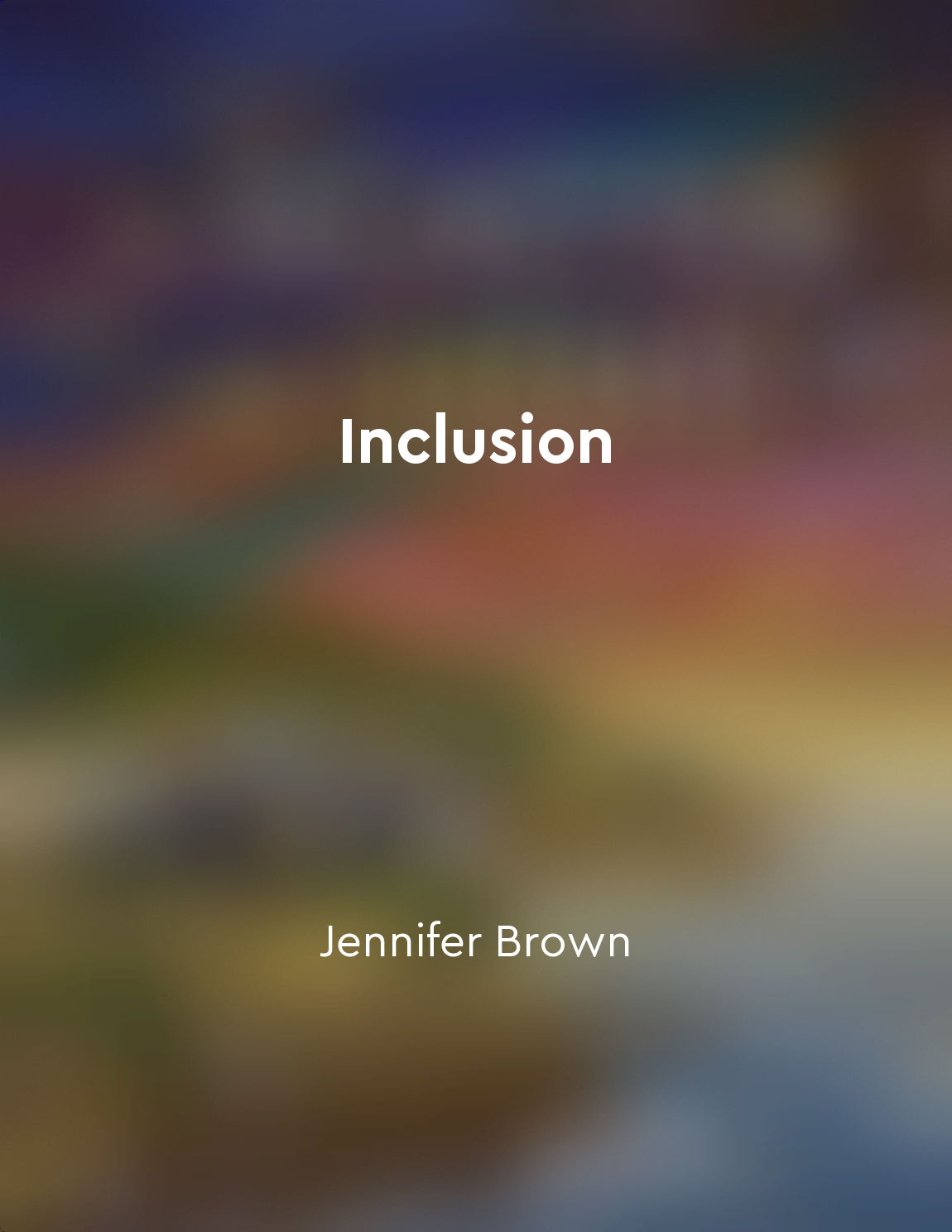Listening to marginalized voices is crucial from "summary" of So You Want to Talk About Race by Ijeoma Oluo
The voices of marginalized people are often drowned out by the dominant narratives that society chooses to amplify. These voices hold within them the truths and experiences that are essential for understanding the complexities of race and racism. Ignoring these voices means missing out on crucial insights that can challenge our preconceived notions and expand our understanding of the world. When we listen to marginalized voices, we are not just hearing individual stories - we are gaining access to a collective wisdom that has been shaped by centuries of struggle and resilience. These voices have the power to disrupt the status quo and shift the conversation towards a more inclusive and just society. By centering these voices in discussions about race, we are acknowledging the inherent value of their perspectives and the importance of their lived experiences. Listening to marginalized voices is an act of humility and empathy. It requires us to set aside our own biases and assumptions, and truly engage with the narratives that have been silenced for far too long. It means recognizing that our own understanding of race is limited and incomplete, and that we have much to learn from those whose experiences are different from our own. Furthermore, listening to marginalized voices is not just a passive act - it requires us to actively seek out these voices and create space for them to be heard. It means amplifying the voices of those who are often ignored or dismissed, and using our own platforms and privileges to uplift their stories. By doing so, we are not only advancing the cause of racial justice, but also enriching our own understanding of the world and our place within it.- Listening to marginalized voices is not just a nice gesture - it is an essential part of the work towards a more equitable and just society. It is a recognition of the profound value that these voices bring to the conversation about race, and a commitment to amplifying those voices in order to create a more inclusive and empathetic world.
Similar Posts
Shirley Chisholm was the first black woman in Congress
Shirley Chisholm made history when she became the first black woman to serve in the United States Congress. This groundbreaking...

Stand strong in the face of adversity
In the face of adversity, it is essential to hold fast to your beliefs, your values, and your principles. When challenges arise...
Poverty disproportionately impacts certain demographics
Poverty affects individuals from different demographic groups in various ways. For example, children are more likely to live in...
Intersectionality reveals the complexity of identity
The idea of intersectionality highlights the intricate web of factors that make up a person's identity. It goes beyond simple c...
Empowering marginalized voices
Toni Morrison delves into the importance of amplifying the voices of those who have been pushed to the margins of society. She ...
Listen to the stories of everyday people
As I journeyed through different communities, I realized the transformative power that lies in listening to the stories of ever...
Liberation entails breaking cycles of oppression
In order to truly achieve liberation, individuals must recognize and actively work to break the cycles of oppression that have ...

Challenging stereotypes is necessary for progress
Stereotypes are insidious. They creep into our minds, shaping our perceptions of others without us even realizing it. They are ...

Value individual perspectives
Valuing individual perspectives is a critical component of creating an inclusive environment. When we take the time to truly li...


